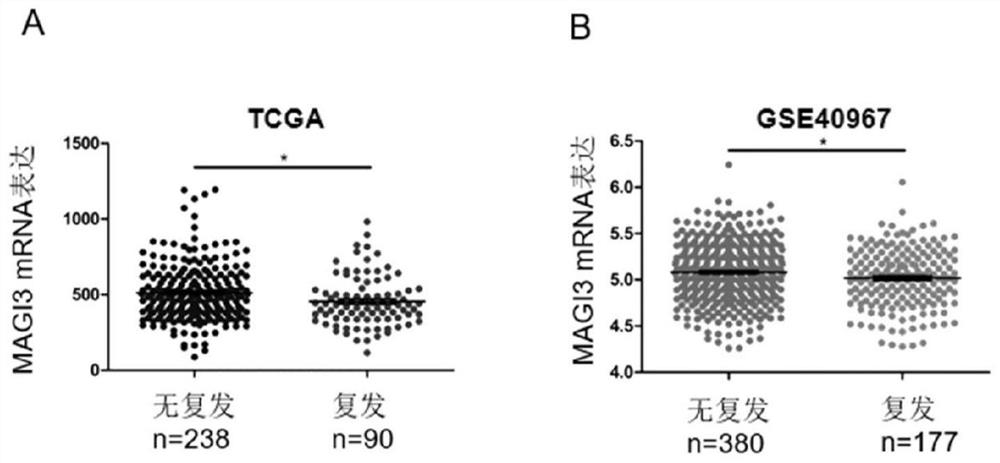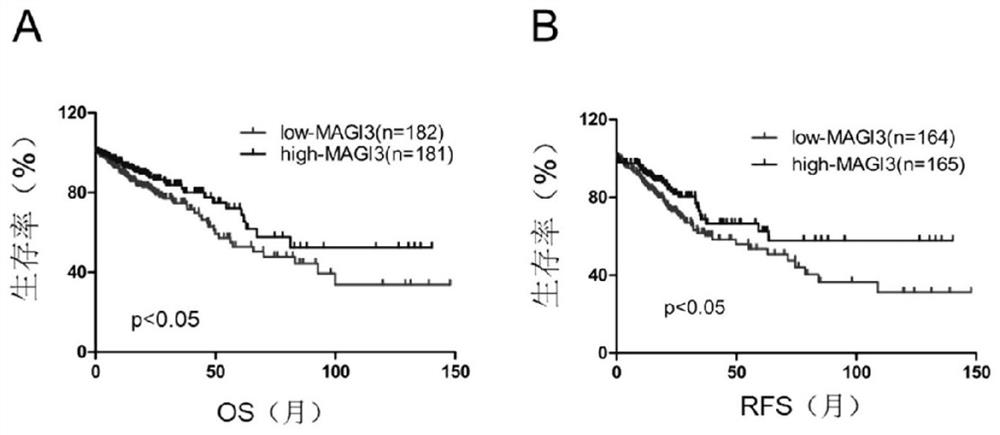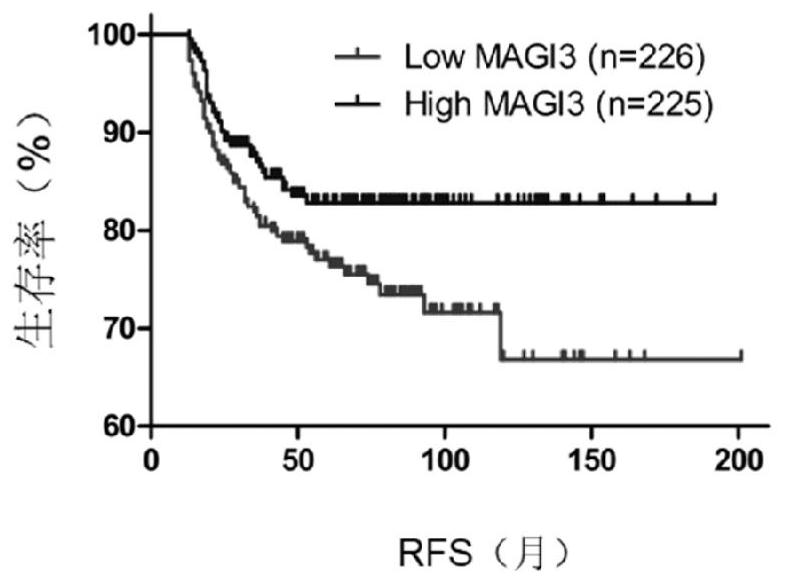Application of MAGI3 in prediction of prognosis or chemosensitivity of colorectal cancer patient
A colorectal cancer, patient technology, applied in the field of biomedicine, can solve the problems of limited information and the degree of colorectal cancer prognosis cannot be well quantified and integrated.
- Summary
- Abstract
- Description
- Claims
- Application Information
AI Technical Summary
Problems solved by technology
Method used
Image
Examples
Embodiment 1
[0083] Example 1 Correlation analysis between MAGI3 expression and prognosis of colorectal cancer
[0084] 1. Database data analysis
[0085] 1. Collect data
[0086] The clinical information of colorectal cancer patients (374 cases) in the TCGA database (see Table 1) and the clinical information of patients (566 cases) in the GSE40967 dataset (see Table 2) were extracted, and analyzed after integration with the MAGI3 expression value.
[0087] Table 1 Clinical information of colorectal cancer patients in TCGA database
[0088]
[0089]
[0090]
[0091]
[0092] Table 2 Patient information in the GSE40967 dataset
[0093]
[0094]
[0095]
[0096]
[0097]
[0098] 2. Results
[0099] The results of both databases showed that compared with patients without recurrence after radical operation, the mRNA expression of MAGI3 in cancer tissues of patients with recurrence was significantly reduced, and the difference was statistically significant ( fi...
Embodiment 2
[0127] Example 2 Correlation analysis between MAGI3 expression and sensitivity to chemotherapy drugs in patients with colorectal cancer
[0128] 1. Collect data
[0129] Patients with chemotherapy and efficacy information included in the TCGA colorectal cancer database were extracted. Please see Table 4 for patient information.
[0130] Table 4 is used for the patient information of this embodiment research
[0131]
[0132]
[0133]
[0134]
[0135] 2. Analysis
[0136] According to the median expression value of MAGI3 mRNA, the collected patients were divided into two groups with high and low expression of MAGI3. It was found that the effective rate of chemotherapy (complete remission, partial remission) in the high expression MAGI3 group was higher than that in the low expression group ( Figure 7 A), at the same time, the expression level of MAGI3 in the drug-resistant patient group (stable disease, disease progression) was lower than that of the effective...
PUM
 Login to View More
Login to View More Abstract
Description
Claims
Application Information
 Login to View More
Login to View More - R&D
- Intellectual Property
- Life Sciences
- Materials
- Tech Scout
- Unparalleled Data Quality
- Higher Quality Content
- 60% Fewer Hallucinations
Browse by: Latest US Patents, China's latest patents, Technical Efficacy Thesaurus, Application Domain, Technology Topic, Popular Technical Reports.
© 2025 PatSnap. All rights reserved.Legal|Privacy policy|Modern Slavery Act Transparency Statement|Sitemap|About US| Contact US: help@patsnap.com



